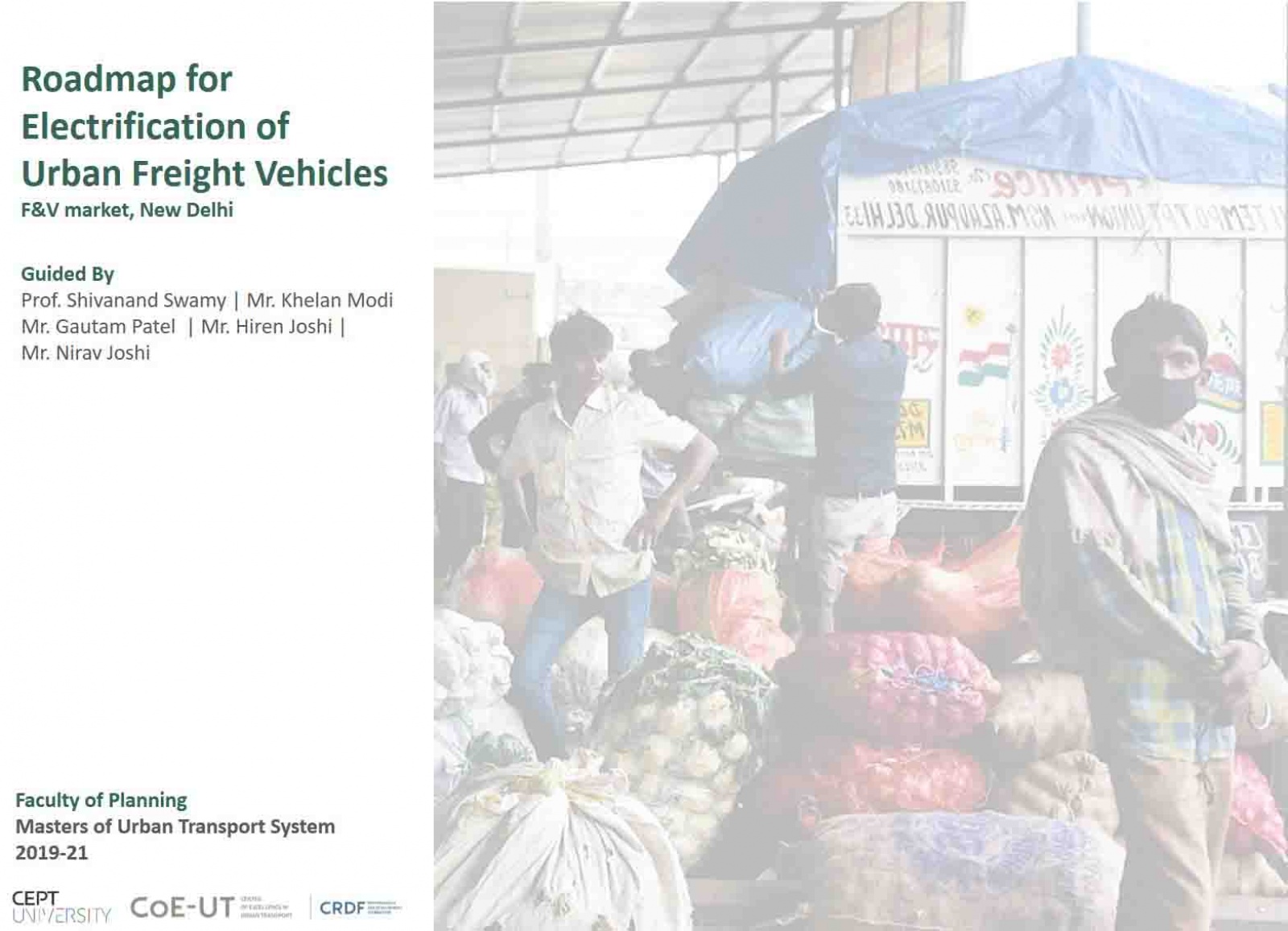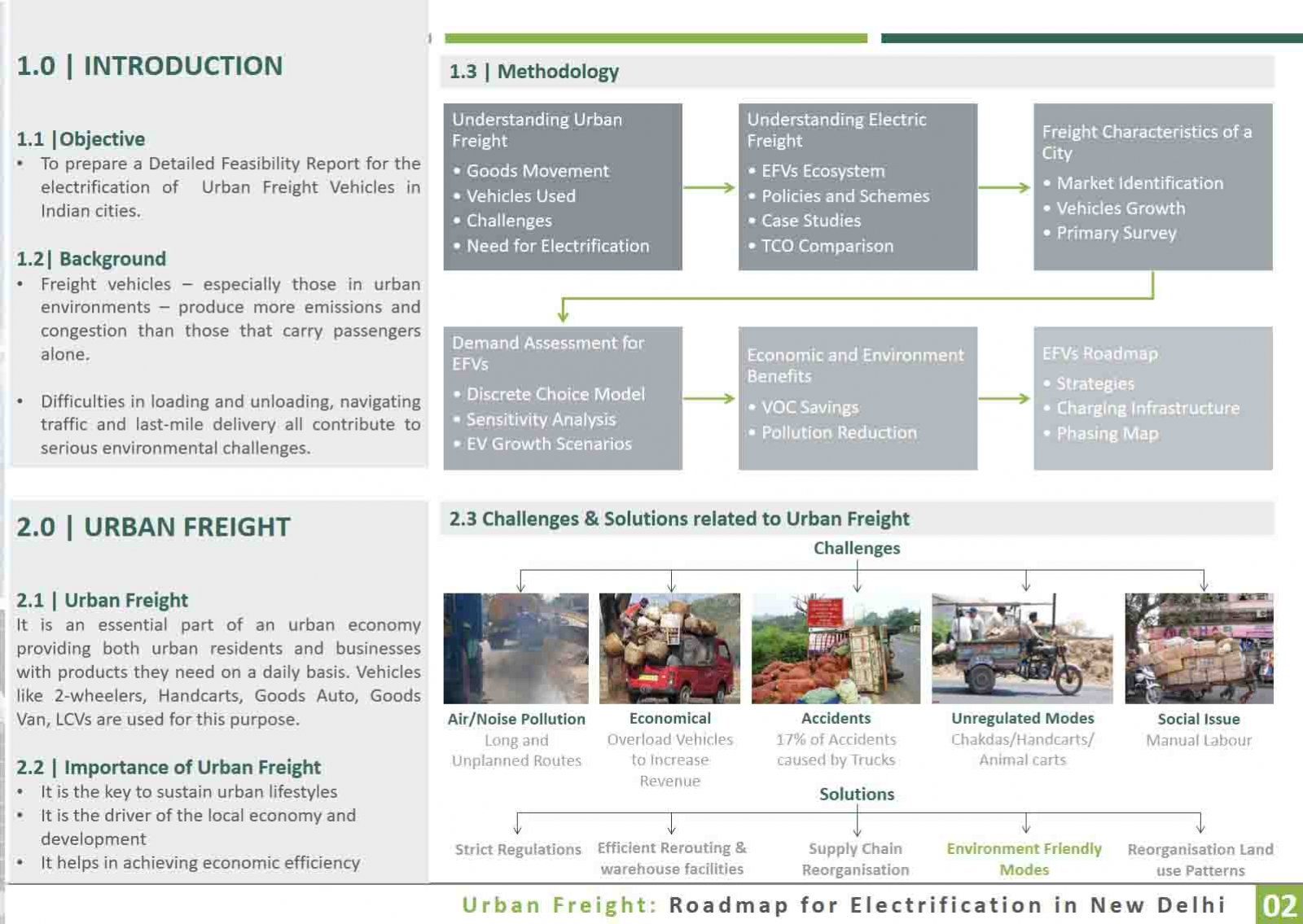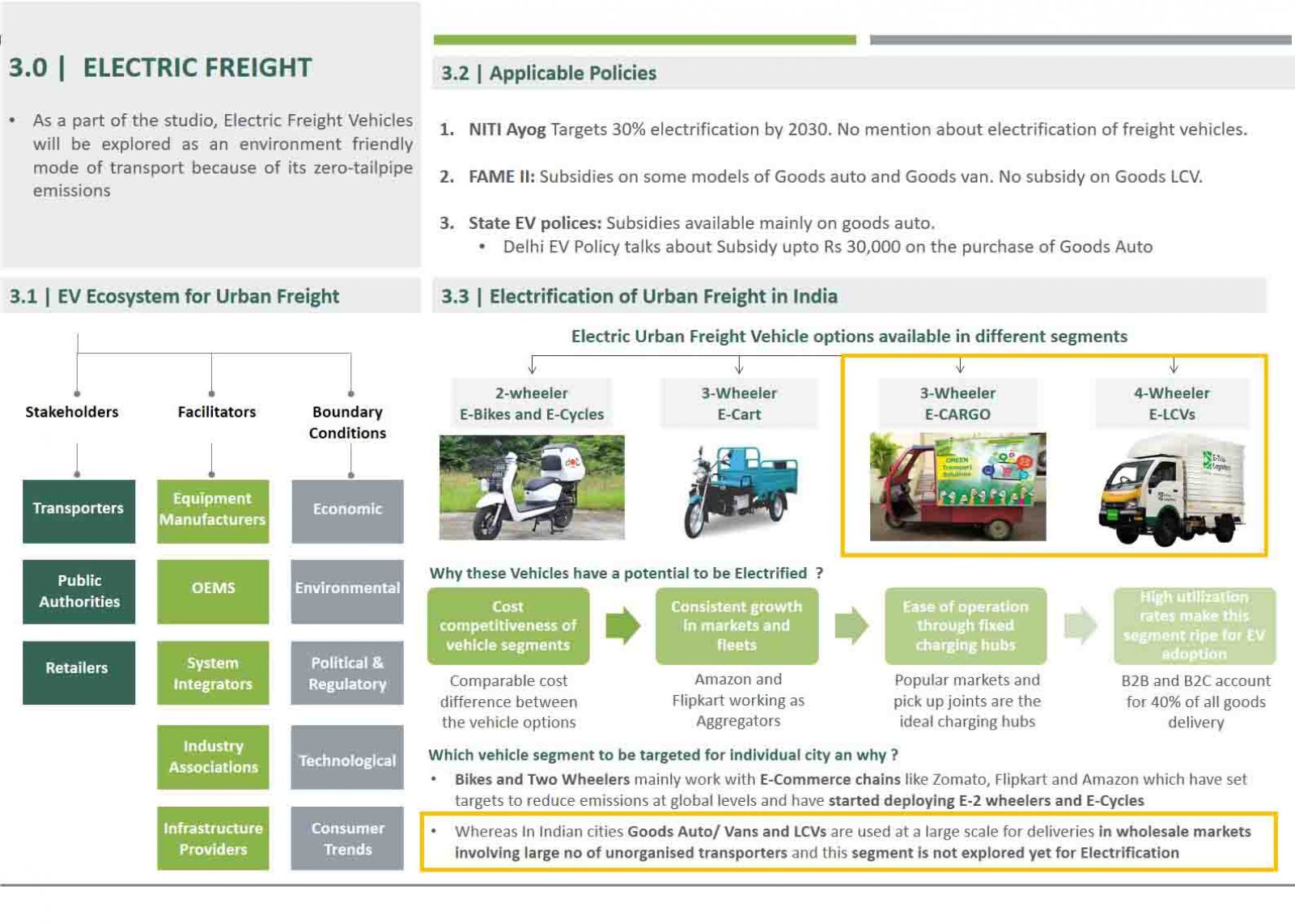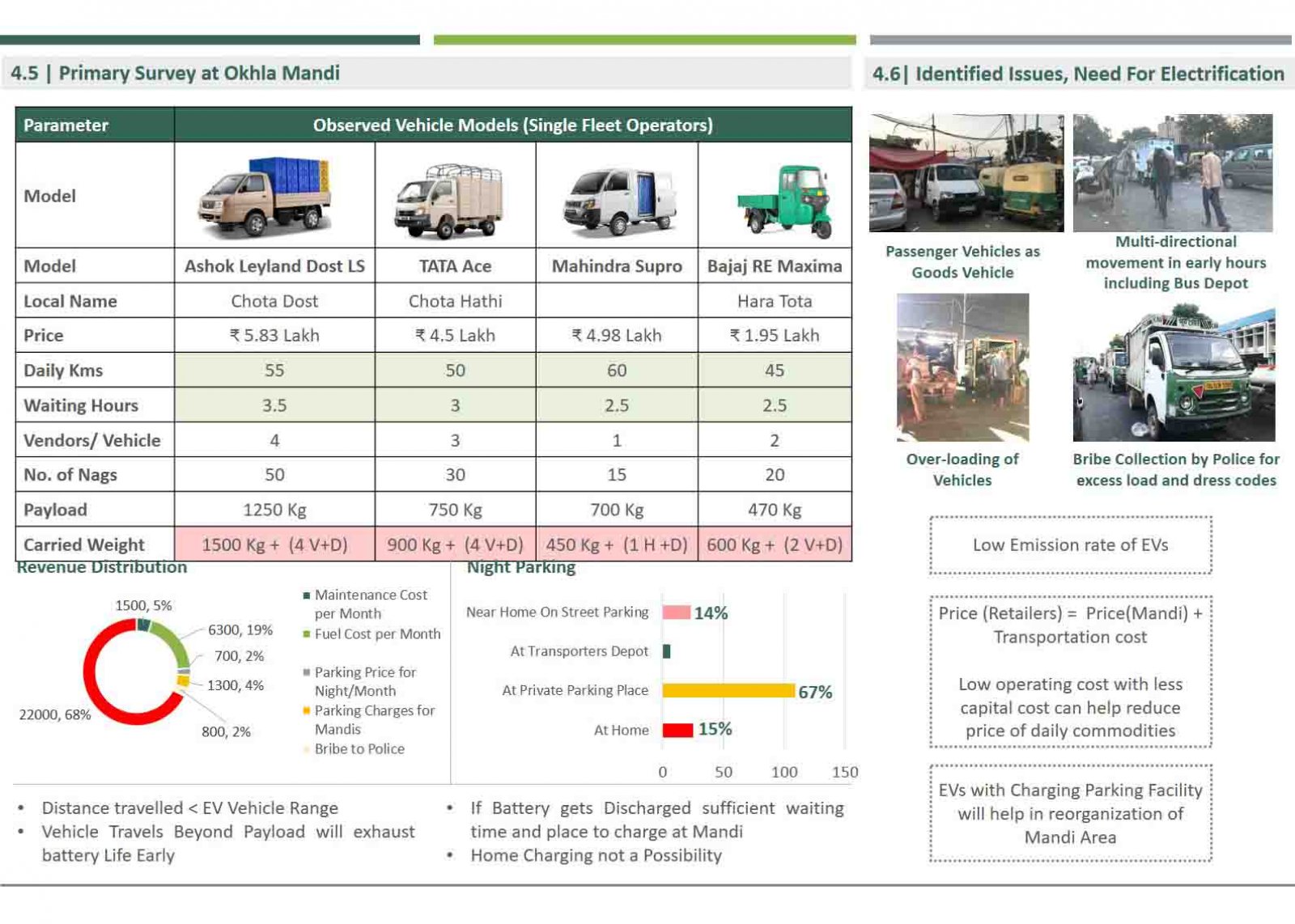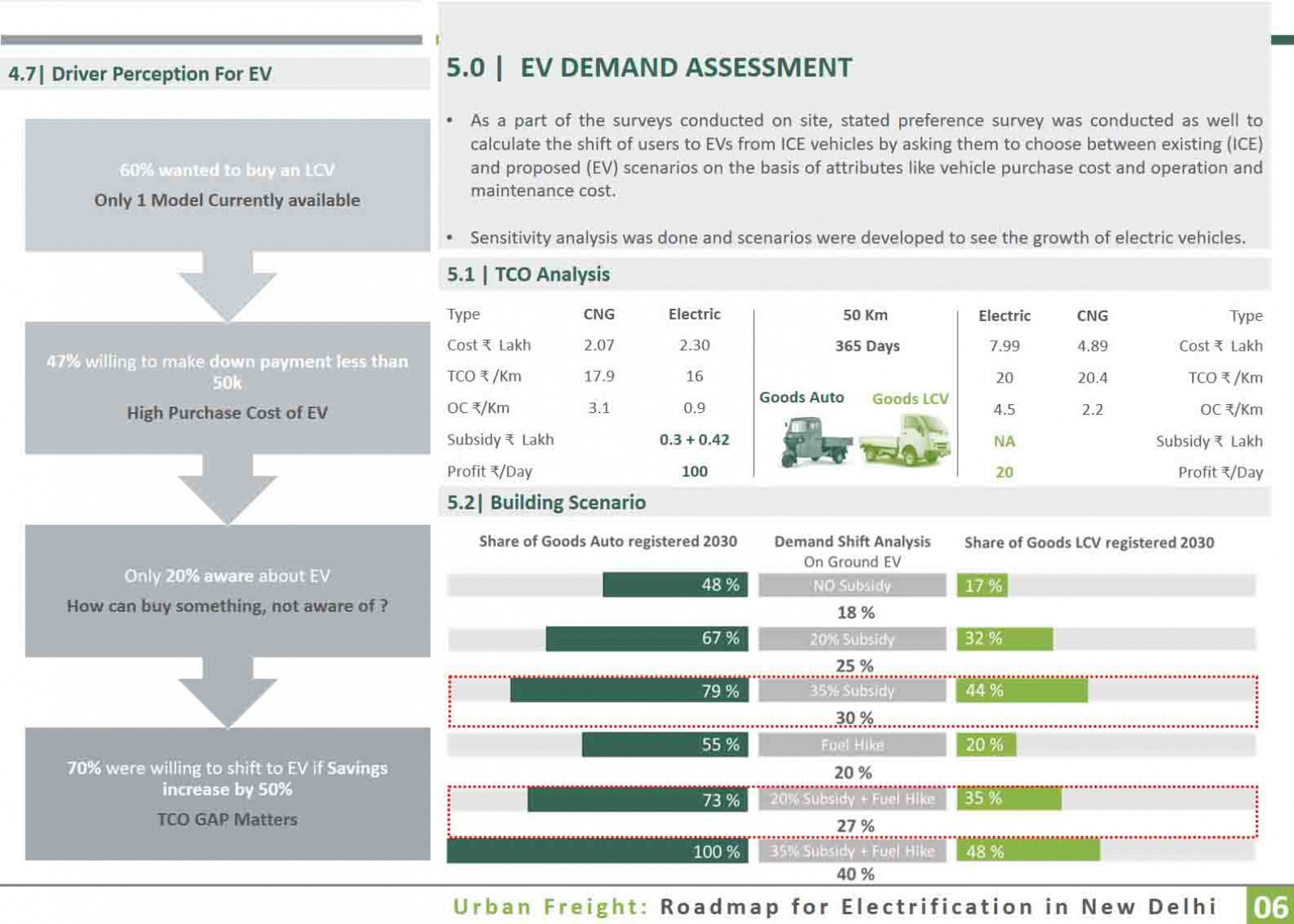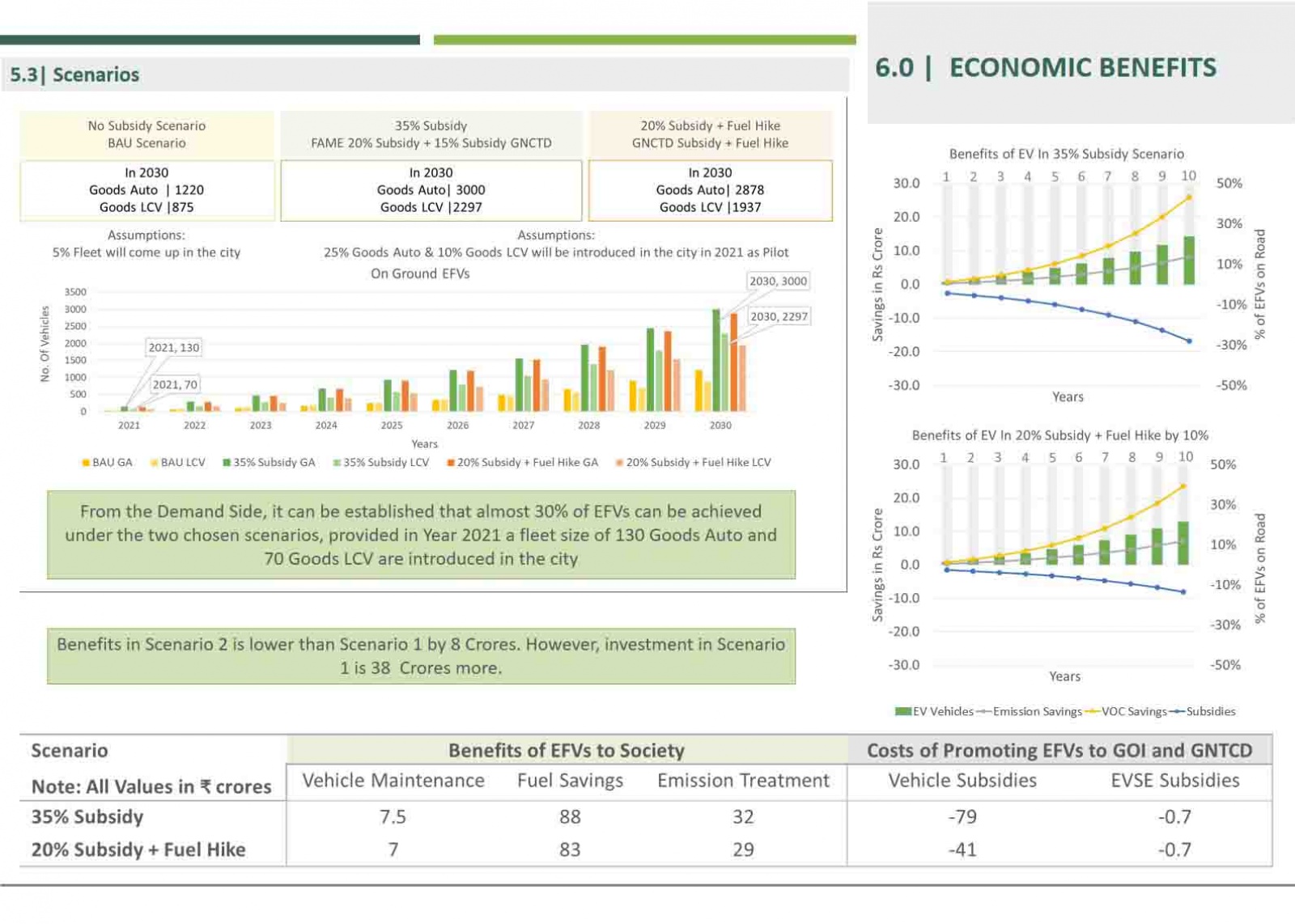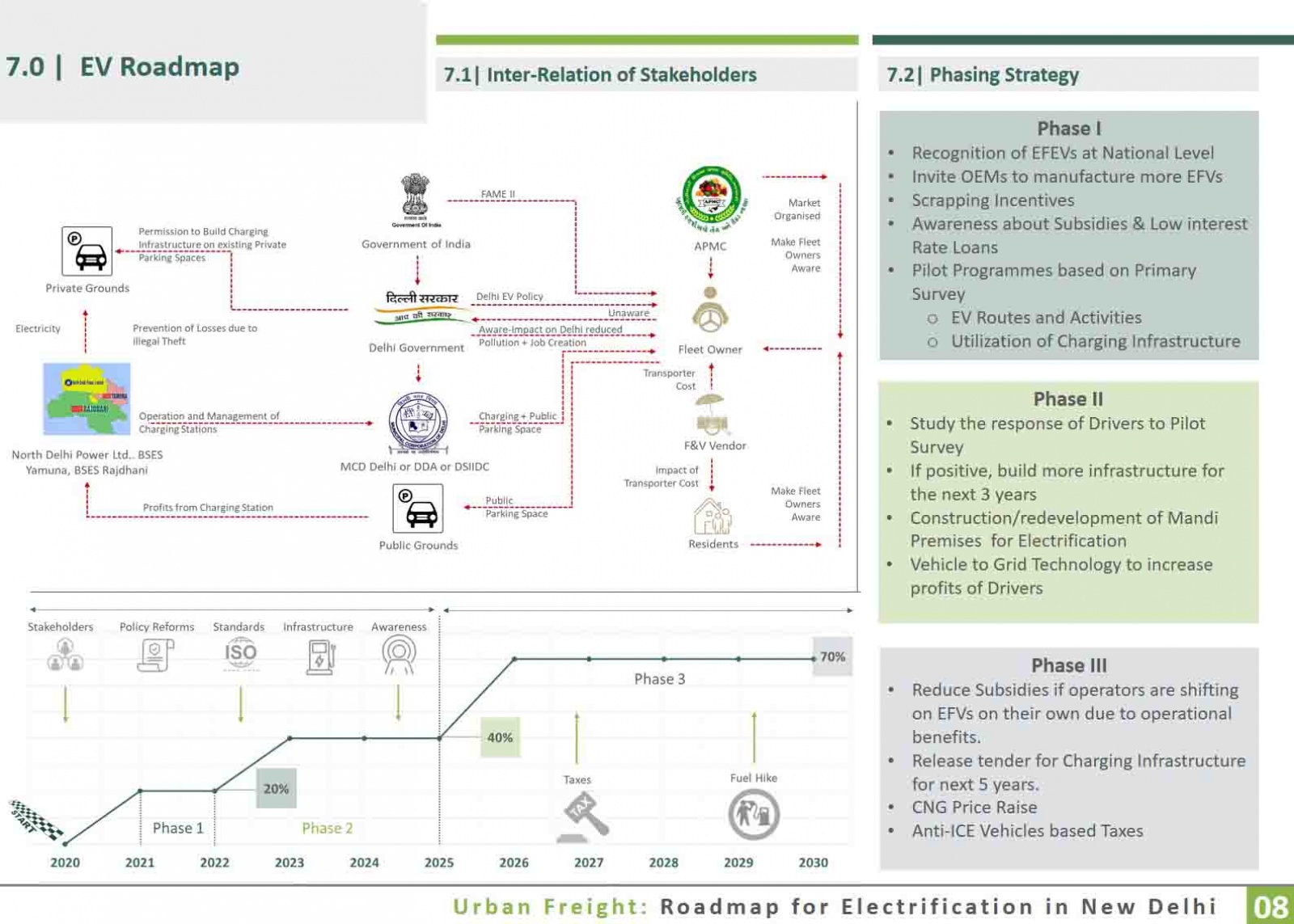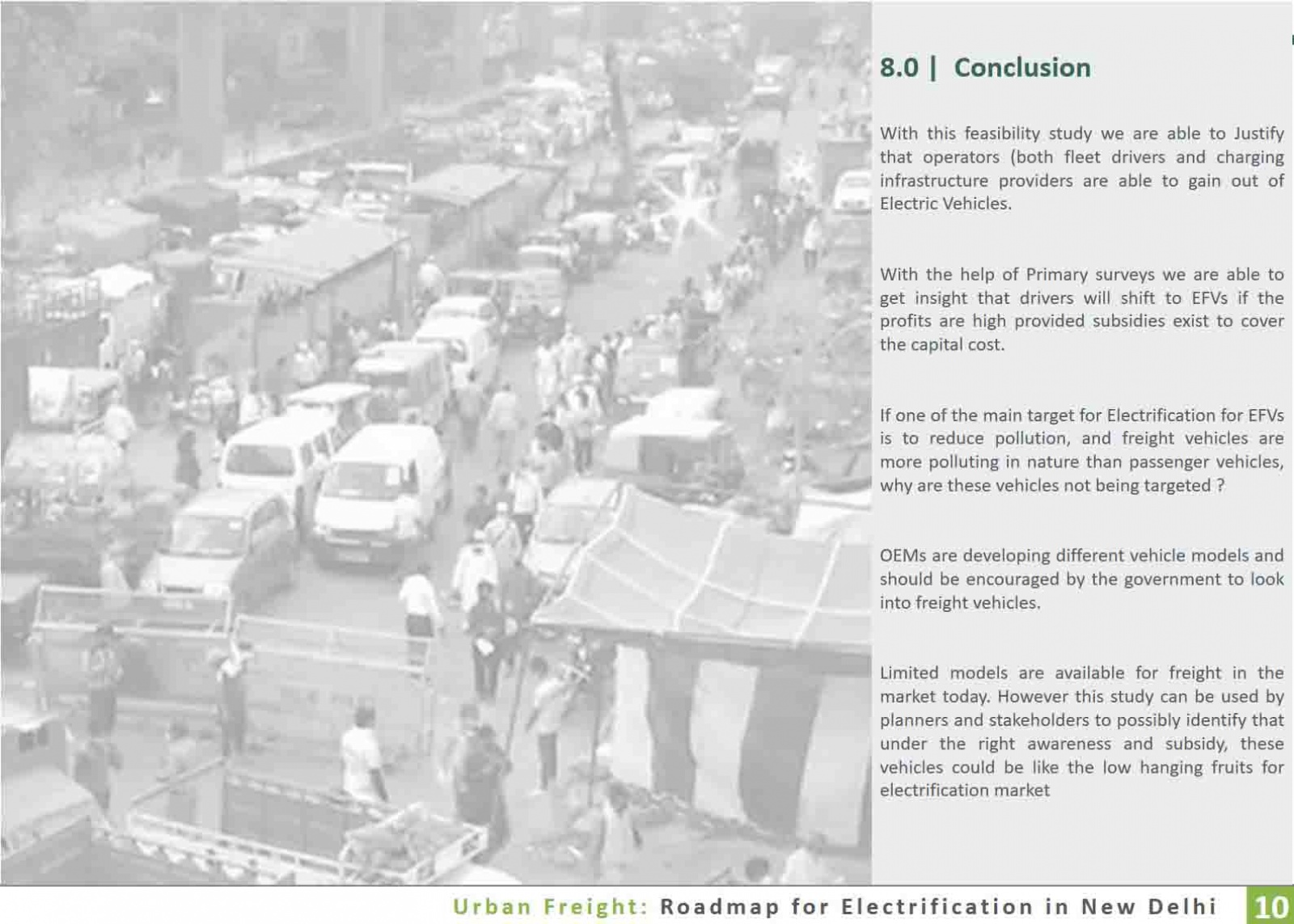Your browser is out-of-date!
For a richer surfing experience on our website, please update your browser. Update my browser now!
For a richer surfing experience on our website, please update your browser. Update my browser now!
In recent years across India, national and state governments have released schemes and policies to promote the adoption of electric vehicles. Most of these documents are however limited to the electrification of public transport (buses), passenger 3-wheelers, and 2-wheelers. Freight vehicles in urban environments produce more emissions than those that carry passengers alone (ICLEI, 2020). In New Delhi, in 2015, a 2.3% share of LCVs contributed to 29.2% of PM2.5 levels. (Info, 2020). The city is one of the fastest-growing cities in terms of population and economy. With an increase in either, the demand for delivery of goods and services will increase. It is important to look forward to electrifying this sector. Hence, the objective of this report is to conduct a feasibility study for the adoption of electric urban freight vehicles while understanding the barriers and opportunities on this transition journey considering the current and proposed market developments. Urban freight movement involves multiple vehicles with varying incapacity, and space design, and based on the goods, spatial supply chain movement differs. Because of the current limitations of EFVs in terms of vehicle design (paying load capacity & battery size), a feasibility study is limited to a single commodity (Fruits and Vegetables). Urban freight vehicles have not really been looked into for the possibility of electrification. This study can be used by planners and stakeholders to possibly identify that under the right awareness and subsidy, these vehicles could be like the low hanging fruits for the electrification market.
